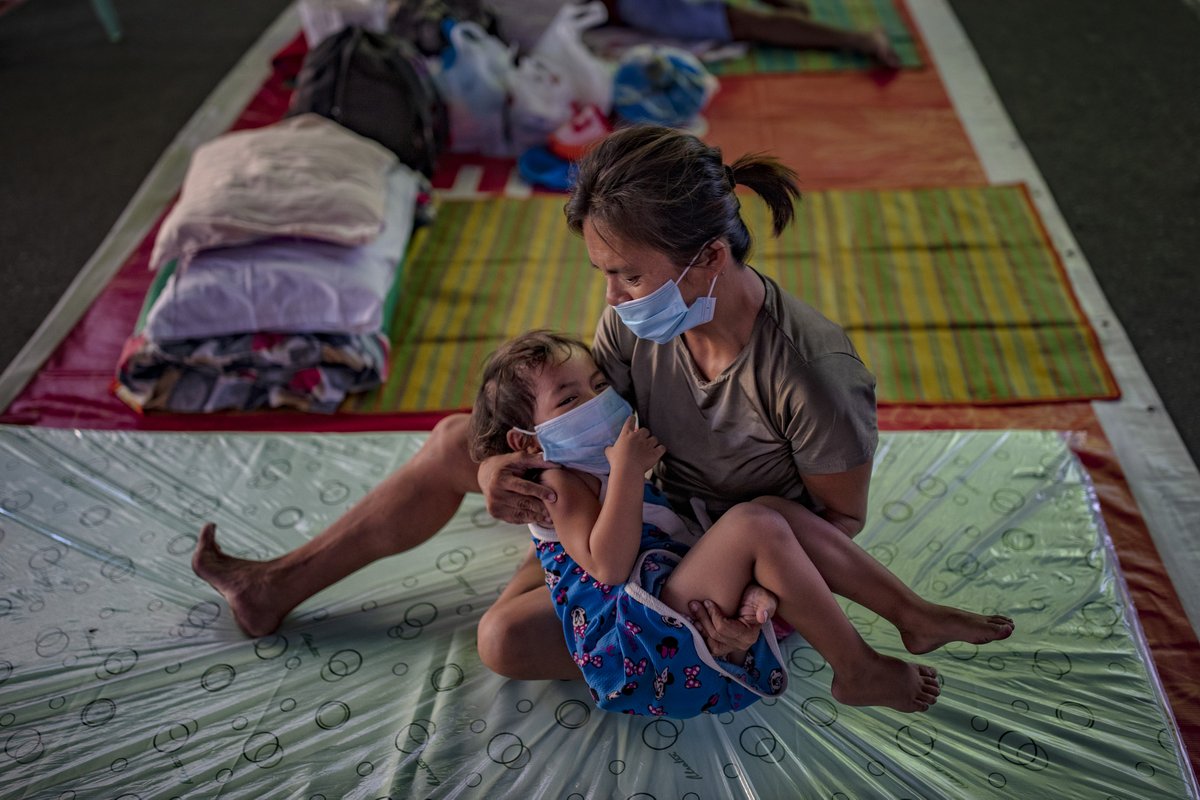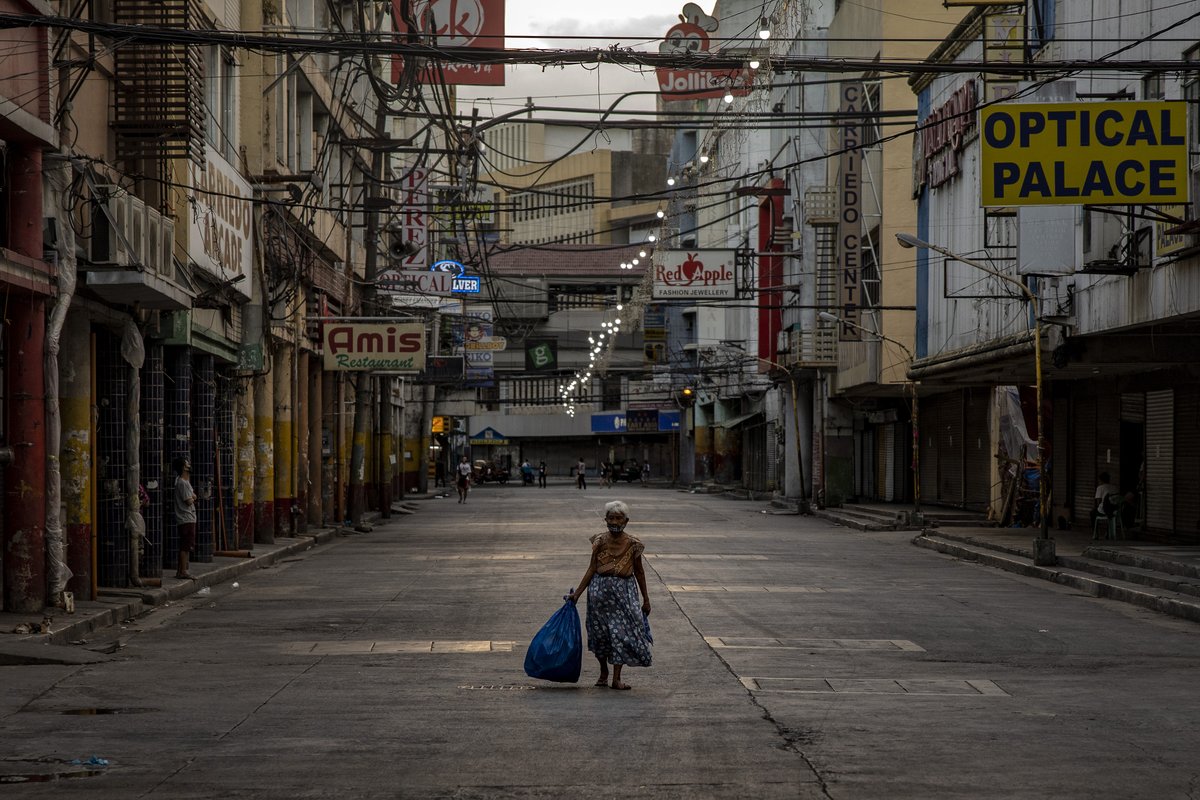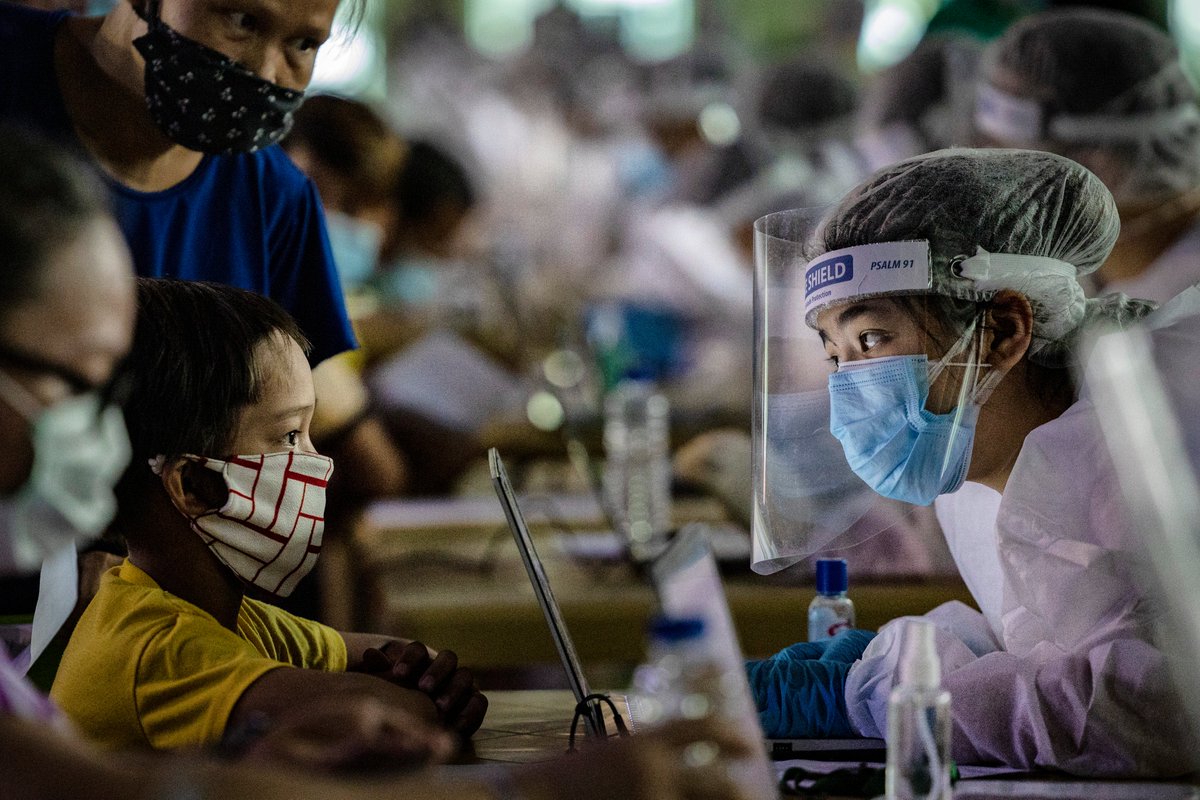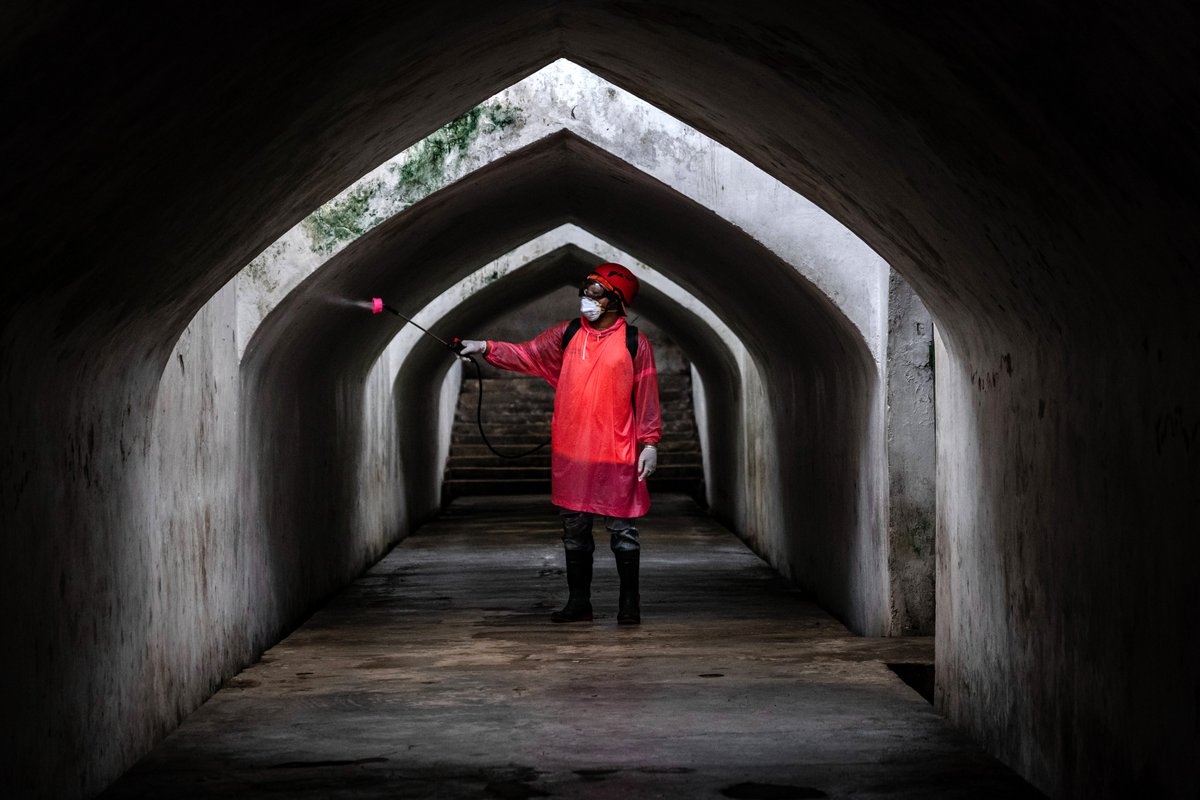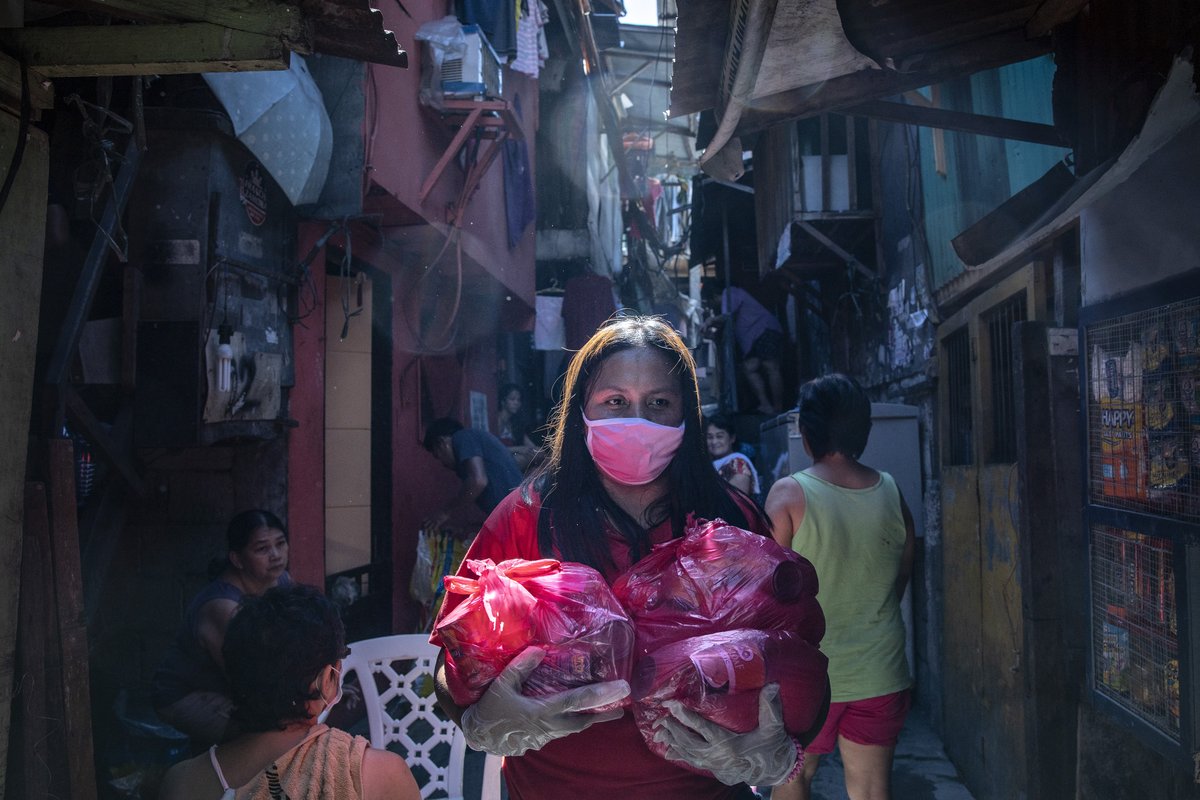A lot of things were going right in Indonesia and the Philippines before Covid-19 arrived:
 Relatively robust economies
Relatively robust economies
 Well-regarded policy makers
Well-regarded policy makers
 The benefit of young, educated populations
The benefit of young, educated populations
Unfortunately, things are going downhill, and fast https://trib.al/nftiehJ
 Relatively robust economies
Relatively robust economies Well-regarded policy makers
Well-regarded policy makers The benefit of young, educated populations
The benefit of young, educated populationsUnfortunately, things are going downhill, and fast https://trib.al/nftiehJ
Indonesia and the Philippines took different approaches to battling Covid-19, but the outcome has been the same:
Deep growth contractions and signs that economic recoveries — when they do come — will be shallow http://trib.al/nftiehJ
Deep growth contractions and signs that economic recoveries — when they do come — will be shallow http://trib.al/nftiehJ
 Global growth has incinerated, and the numbers paint a grim picture.
Global growth has incinerated, and the numbers paint a grim picture.  In the Philippines, GDP shrank 16.5% from a year earlier, the biggest plunge ever
In the Philippines, GDP shrank 16.5% from a year earlier, the biggest plunge ever Indonesia recorded a fall of 5.3%, the most since the Asian financial crisis http://trib.al/nftiehJ
Indonesia recorded a fall of 5.3%, the most since the Asian financial crisis http://trib.al/nftiehJ
Both nations are also vying for the unhappy mantle of the most coronavirus infections in the region. As of Wednesday:
 Indonesia has 116,871 cases
Indonesia has 116,871 cases
 The Philippines 115,980 cases http://trib.al/nftiehJ
The Philippines 115,980 cases http://trib.al/nftiehJ
 Indonesia has 116,871 cases
Indonesia has 116,871 cases The Philippines 115,980 cases http://trib.al/nftiehJ
The Philippines 115,980 cases http://trib.al/nftiehJ
Consider some of the preexisting conditions that Jakarta and Manila have:
 Poor infrastructure
Poor infrastructure
 An underdeveloped healthcare system
An underdeveloped healthcare system
 Tightly packed metro regions http://trib.al/nftiehJ
Tightly packed metro regions http://trib.al/nftiehJ
 Poor infrastructure
Poor infrastructure An underdeveloped healthcare system
An underdeveloped healthcare system Tightly packed metro regions http://trib.al/nftiehJ
Tightly packed metro regions http://trib.al/nftiehJ
In a cruel twist, neither is anchored in the global supply chains that buttress:
 Malaysia
Malaysia
 Thailand
Thailand
 Singapore
Singapore
 Vietnam
Vietnam
Even though Indonesia and the Philippines have less exposure to the collapse in global demand, it hasn't offered a big cushion http://trib.al/nftiehJ
 Malaysia
Malaysia Thailand
Thailand Singapore
Singapore Vietnam
VietnamEven though Indonesia and the Philippines have less exposure to the collapse in global demand, it hasn't offered a big cushion http://trib.al/nftiehJ
The most obvious lever to pull is fiscal policy.
But Indonesia doesn’t appear up to the task: Only 20% of additional spending is earmarked to address the pandemic. Somehow the government is still clinging to the idea of escaping a full-year contraction http://trib.al/nftiehJ
But Indonesia doesn’t appear up to the task: Only 20% of additional spending is earmarked to address the pandemic. Somehow the government is still clinging to the idea of escaping a full-year contraction http://trib.al/nftiehJ
While the lapses aren’t as egregious in the Philippines, politicians could be doing a whole lot more.
The amount the Senate has proposed — 140 billion pesos ($2.9 billion) — is far less than what governments elsewhere in Southeast Asia are providing http://trib.al/nftiehJ
The amount the Senate has proposed — 140 billion pesos ($2.9 billion) — is far less than what governments elsewhere in Southeast Asia are providing http://trib.al/nftiehJ
During the last five years, economic growth in the Philippines averaged more than 6% and was projected to surpass 7% in 2020, exceeding long-time emerging-market stars like China and India.
That notion is in tatters http://trib.al/nftiehJ
That notion is in tatters http://trib.al/nftiehJ
Indonesia’s expansion had been remarkably consistent recently, at around 5% a year.
But while Jokowi wanted his second and final term to lift that number toward 7%, anything above zero would now be a big win http://trib.al/nftiehJ
But while Jokowi wanted his second and final term to lift that number toward 7%, anything above zero would now be a big win http://trib.al/nftiehJ

 Read on Twitter
Read on Twitter